
When recruiting and hiring students with autism, it’s important for employers to train hiring managers so they understand how the hiring process might look different and adjust their criteria on how they evaluate candidates.

The most prominent elements of a successful partnership between an HBCU and an employer are gaining understanding of challenges, demands, and goals and changing behaviors.

Disney provides resources to the College Fund to administer the latter’s scholarship program, called the Future Native Storytellers Program. Recently, a smaller group of program scholars was selected to receive additional enhancements to increase the awareness of opportunities at Disney for Native students.

Forté, winner of the 2024 NACE Business Affiliate Award for Excellence in Leadership, focuses its work on systematically addressing the barriers that prevent women from pursuing MBA degrees and business leadership positions.

The Georgia Tech Career Center, large-college winner of the 2024 NACE Career Services Excellence Award, hired eight new staff members across various functional areas within the office in a process that aligned with the institute’s DEI Blueprint to, in part, closely reflect the demographics of Atlanta.

AI can support first-generation students in the job search by bridging the gap in their professional network.

Attendees of the USC Leventhal School of Accounting’s inaugural “Accounting Without Walls” Festival left with actionable plans to implement DEI strategies in their organizations, a deeper understanding of the current DEI landscape in accounting, and more.
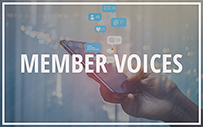
The use of gamification apps at in-person events can be invaluable for individuals who may struggle to focus or interact in traditional settings.

Although allyship with the LGBTQ+ community different for everyone, one thing is clear: It requires action.

Winner of NACE’s 2024 Diversity, Equity, and Inclusion Excellence Award for colleges, the Georgia Tech Career Center’s Georgia Tech’s AuthenTECH Partnership initiative leverages staff to provide population-specific resources, expand programming, and cultivate partnerships to advance equitable career outcomes.

Recent data reveal that systemic barriers continue to limit progress on achieving pay equity for all—yet there are tangible, proven ways that career centers and employers can make an impact.

Consultant Katie Donovan offers tips for employers to eliminate the main causes of pay inequity for women, including that women are underpaid doing the same jobs as men and are underrepresented in leadership roles.

Women remain underrepresented in computer science majors and careers. Two researchers conducted a study to see how women in computing experience and make sense of their internships, and how their internship experiences shape their future career plans.

As HBCUs are a key source of high-quality, diverse talent for employers, there are benefits for both institutions and organizations in developing successful partnerships.

Evangeline “Eva” Kubu, Princeton University, explores how to address long-standing systems and practices to ensure all Ph.D. students have equitable access to comprehensive professional development.

Due to their underrepresentation in the classroom and societal messaging around technology being a “masculine domain,” women in computer science often feel isolated and marginalized. A study demonstrates how women’s experiences in computing internships shape their future career decisions; the findings have implications for both career development professionals and employers who recruit entry-level talent.

What are some key considerations and steps for employers to take to create long-lasting, mutually beneficial partnerships with HBCUs and PBIs?

Interviews with diversity, talent, and industry experts revealed confusion, conflation, and a general lack of conceptual clarity around fundamental differences in DEI& B in their organizations.

At the University of Cincinnati, students facing financial constraints can access a grant designed to enable them to engage in career-focused courses.

Research conducted by NACE and The Center for the Study of HBCUs underscores how important it is for companies to conduct audits to assess gaps and inequities in their recruiting efforts.

Chelsea C. Williams, founder and CEO of Reimagine Talent Co., defines “belonging” as a feeling that people have when they are seen, valued, protected, and respected. “While, ultimately, individuals determine and define their sense of belonging, I do believe there are steps we can take to build for belonging,” Williams adds.

Diversity and inclusion have traditionally been about race and about sex, but we are all so much more than just what is visible, explains author, speaker, and social impact adviser Michele Sullivan.

There are key steps that employers and colleges can take to ensure that their culture is inclusive, such as providing training, planning intentionally, and holding employees accountable, says MarTeze Hammonds, Ed.D.

Three members of NACE’s HBCU Affinity Group share their thoughts about and personal experiences with HBCUs.

Liberty Mutual takes a very targeted approach to the sources of talent they try to attract, engage, and hire. This extends far beyond a traditional target school list.

NACE Brief: Understanding the Experiences and Attitudes of LGBTQ+ Students is free to NACE members. There are important—and troublesome—differences in pay, sense of belonging, and job offers that LGBTQ+ students experience during internships that impact their experience in the job search and employment, according to NACE’s newly released brief titled Understanding the Experiences and Attitudes of LGBTQ+ Students.

After witnessing the impact that the pandemic had on early undergraduate students from underrepresented groups in the tech industry, IBM scaled up its early talent ID program.
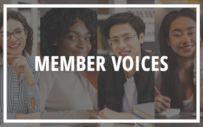
Many emerging professionals are turning to community colleges, vocational schools, and technical bootcamps to gain marketable skills.

There were gender and race disparities within the compositions of the 2020-21 intern cohort as the majority of students who take part in internships are men and identify as white, according to results of NACE’s 2022 Internship & Co-op Survey.

Launched in 2018 with a flagship two-day immersive conference, Workday’s “Future Females in Tech Engagement Program” helps women to build career confidence and make the connections they need to get started in the tech industry.

The UC Berkeley Career Center’s annual transfer student career summit is a five-hour virtual event that was created to help connect transfer students, who are often overwhelmed when navigating career opportunities, and employers that are not aware of the value transfer students can bring to organizations.

There are several research-based practices employers can implement to achieve greater success in recruiting and developing interns from HBCUs and PBIs.

Employers are looking for help to attract and retain Black talent. Career services professionals can help them by sharing 16 strategies that will help them.

The internet is full of advice on how international students can lower the costs of their own education, but individual students aren’t going to solve this problem on their own through a personalized, piecemeal approach. Collective action is necessary. Stakeholders from the educational sector, financial world, and the business community must work together to create a unified system that works.

College students who identify as lesbian, gay, bisexual, transgender, or queer (LGBTQ) experience unique challenges in the area of career preparation.

There are specific actions that institutions and organizations can take to ensure that they create a culture that supports the personal and professional growth of Black individuals.

During a recent NACE Town Hall, panel members shared experiences and offered ideas for moving ahead with diversity, equity, and inclusion.

How do we support students who have been marginalized or who may feel unsafe around law enforcement while also supporting employers in law enforcement?

Language is a key element of diversity, equity, and inclusion, and can help or hinder efforts in this area.

There are several key steps that organizations can take to best support “onlies” and provide a healthy space for them to excel at work.

An inclusive work culture mirrors the community the organization serves and yields many benefits for both the organization and its employees.

The Office of Career and Continuing Education at Florida Southern College developed and implemented the “Diversity in the Workplace” series to address student needs.

Expert and author Tony Byers cites research confirming that there are substantial benefits associated with having a diverse and inclusive workplace.

Initiative provides support and creates a culture of understanding for what it means to be a member of the LGBTQ+ community at a Catholic university.

When developing a strategy for retaining early diverse talent, there are key steps for organizations to take and factors for them to consider to ensure these efforts are impactful.

Collaboration among campus offices is a critical aspect in supporting students with disabilities during their search for employment.

Key aspects of building an effective neurodiverse hiring program are having a sustained supply of candidates and getting buy in from within.

Highlights from the NACE19 mega-session offer insight into how to make excellence inclusive.

Not only can workplace discrimination and microaggressions have a negative impact on people of color in their careers, it can affect their mental health.

Students with hearing loss may face challenges associated with communication that may be exacerbated during this pandemic, with requirements for wearing masks and physically distancing.


WCU’s career center and autism program developed a sensory-friendly event where differently abled students feel more comfortable and confident interacting with recruiters.

MI GEAR UP is a statewide program designed to provide support to students from high schools in low-income areas who are making the transition to college and throughout their first year there

Empower Retirement is moving away from assessing candidates for “culture fit” by aligning values and providing hiring managers with interview questions and language.

There are questions that career services professionals can suggest their students ask recruiters to assess an organizations’ DEI priority and commitment.

Students may ask specific questions to assess your organization’s commitment to diversity, equity, and inclusion. Be prepared to answer them.

Most organizations should look to address is their cultural landscape and homogenous culture. Senior leaders and recruiters can consider these 10 concrete ideas and practices that could positively impact creating an inclusive workplace and environment.

Visibility and the tiering of school partnerships are two of the challenges Historically Black Colleges and Universities face in attracting employers to recruit their students.

Many businesses and organizations are unclear about their ability to hire DREAMers who have DACA or TPS. In fact, employers are able to hire a DREAMer just as they would a U.S. citizen.

By better understanding and accounting for the obstacles Native students face, career services and university relations and recruiting professionals can help them achieve their career goals.

Building trust with TCUs and Native students and bridging gaps in areas of need will aid employers in their recruitment efforts.

While many institutions and organizations have stepped up their inclusive communication—especially over the past year—some still fall short.

CSU Fullerton’s “I Am First” program addresses the specific needs of first-generation college students and prepares them for the challenges they face.

When one HBCU career practitioner is building relationships with employers, she is looking for authenticity, a shared sense of purpose, and impactful engagement opportunities for students and the university as a whole.

Cultural intelligence may be the most important individual area of change for organizations that want to bolster their recruitment and retention of culturally diverse individuals.

Sandra Buatti-Ramos offers a look at some of the bigger issues trans college students face in their job search and in the workplace; the goal is to provide career services professionals with insights that can help them think about how they can support their trans students in their career decision-making, job search, and career management.

It is critical that administrators and staff at colleges and universities foster an environment of inclusion and belonging for international students; for career development professionals in particular, this means making it clear to international students that their career development matters. One of the best ways to do this is by building a strong partnership between the career center and international student services.

Career services offices can help students develop their professionalism and navigate situations when “professional standards” may fuel and foster bias.

The biggest challenge with “professionalism” is ensuring that all candidates and employees understand what it means within the context of the organization and their specific job function.
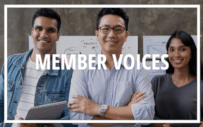
As employers continue to emphasize diversity, equity, and inclusion at the workplace, acts such as correctly pronouncing names becomes an increasingly important first step.
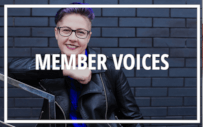
Despite many employers advocating for employees to bring their authentic selves to work, employees that do so may still face hostility from coworkers due to this decision.
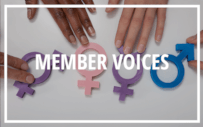
Employers and career services professionals should take a proactive approach to ensure their spaces are tangibly inclusive to a multitude of gender identities.
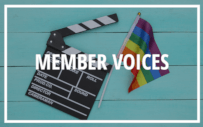
Through diversity in entertainment, students from marginalized groups can discover many career options that they may not have otherwise considered.
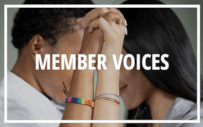
The journey to living authentically both personally and professionally is not always a smooth one and can have a lasting impact on the mental health of those who make the decision to do so.

Part of the mission of UNH CaPS is to help employers establish or enhance employers’ work around diversity and inclusion by providing them with resources, consultation, and recognition.

With student populations becoming more diverse, career centers need to change and adapt to their needs and be inclusive as they develop resources, opportunities, and programming.

In response to the climate of racial injustice, Dell expanded its definition of recent graduate talent to engage underrepresented minorities.

When creating programs, resources, and services for marginalized students, Stanford starts with identifying issues and needs through focus groups, research, and outcomes.

Recent research suggests that career development programs that focus on key levers of economic mobility may play a critical role in reducing or eliminating racial wealth gaps for their participants.

To implement and foster an inclusive climate in higher ed, institutions need to create a culture of belonging, attract diverse talent at the entry level, and build intentional pathways to retain diverse talent.

A survey of 300 first-generation college students identified three skill sets that these students need for career success: relationship management; virtual work; and leadership skills.

The Carolina Cluster forged a new model for career readiness and designed and implemented programs to improve employment outcomes for graduates.

Employee resource groups can be valuable tools for helping employers to bolster their diversity, equity, and inclusion efforts, and to help with effective onboarding and retention.
To best serve a total student body, it is incumbent upon career centers to evaluate exactly who is using their services and how they are promoting their services.

College and university career services practitioners should continuously search for, review, and consider implementing practices that have proven successful in the service of trans students. This article serves as an introduction to successful practices.

Cigna recently held a virtual event to increase awareness of HBCUs and spotlight the prominence and legacy of HBCUs in the Black community.